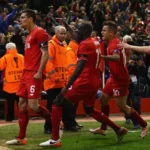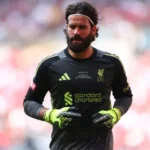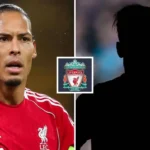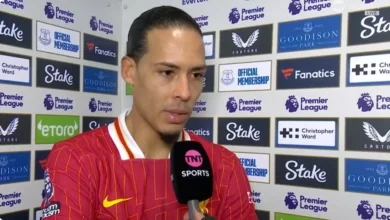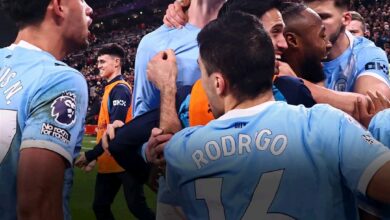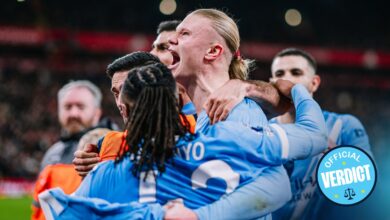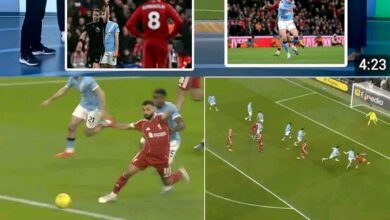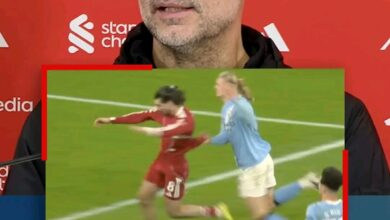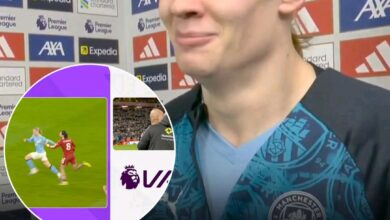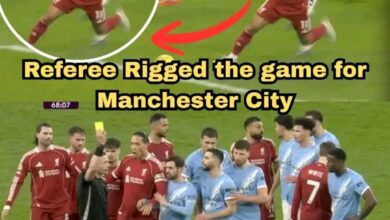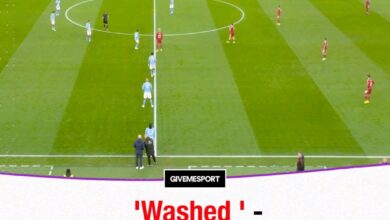Virgil van Dijk comfirmed club exit and recent news
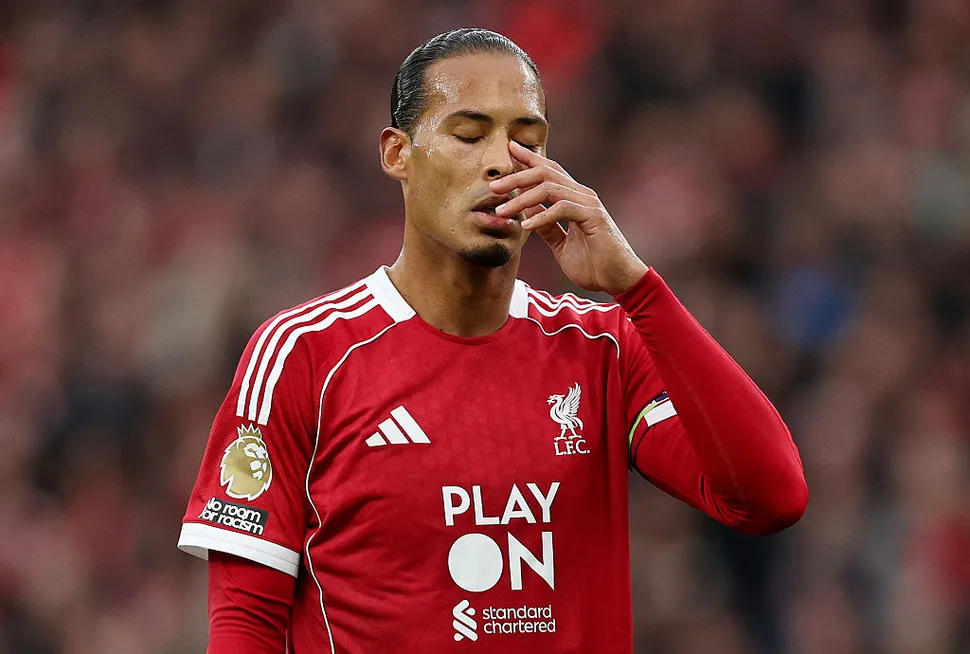
Virgil van Dijk was once the wall that no one could break, the rock that carried Liverpool through storms, the calm leader who never lost control. But now, something feels different at Anfield. The giant Dutch defender who once terrified strikers now looks like a man searching for his old self. The same man who lifted the Champions League and Premier League trophies with pride is now facing questions about his future, his form, and even his place in the starting lineup. It feels almost unreal, but football has a cruel way of turning heroes into doubters overnight.
This season, under new manager Arne Slot, Liverpool have not been their usual self. The team that once pressed like a machine, that once moved with fire and confidence, is struggling to find rhythm. Six straight defeats in the Premier League have shaken the entire red half of Merseyside. The dressing room is heavy. The fans are anxious. And at the center of all this stands Virgil van Dijk — the captain, the leader, the symbol of Liverpool’s defense for nearly a decade — now being questioned by pundits and even by some of his own supporters.
It started quietly. A misplaced header here, a wrong positioning there. But slowly, people began to notice that Van Dijk didn’t look like the same player who used to dominate attackers with ease. Opponents who once feared to face him now dared to run at him. Analysts began to replay moments of hesitation, clips where he didn’t close down quickly enough, or where his timing was off. And when Liverpool began to lose game after game, the spotlight turned directly on him.
A Dutch football writer said something that made headlines across England and the Netherlands: “If Van Dijk doesn’t find his top form soon, he could lose his place not only at Liverpool but also in the Netherlands national team.” Those words hit hard. For a player who has always been calm and composed, hearing talk of being dropped was like a thunderbolt.
The criticism wasn’t cruel; it was worrying. Even FourFourTwo, the respected football magazine that once named him among the top three defenders in Premier League history, admitted that the captain hasn’t been near his best. They reminded fans that greatness in football isn’t just about what you did before, but what you do now, in the present. And right now, Van Dijk’s present looks like a storm he must find his way out of.
It’s strange to think how fast things can change. Just a few seasons ago, he was untouchable. Jurgen Klopp built his entire defense around him. He was the calm voice, the one who shouted instructions, the one who organized every line, the one who stood tall when others lost confidence. Strikers like Raheem Sterling, Marcus Rashford, and Pierre-Emerick Aubameyang all admitted that facing Van Dijk was like running into a wall. But now, those same players would feel differently. Football has no mercy for memories.
Arne Slot’s system is different from Klopp’s. While Klopp’s Liverpool relied on high pressing and defensive aggression, Slot’s system asks defenders to play higher, take more risks with the ball, and trust in midfielders to recover. For a defender like Van Dijk, who has always depended on reading the game and controlling space, this new setup can feel uncomfortable. Sometimes he looks uncertain about whether to step forward or stay back. Sometimes, when the midfield loses control, the defense gets exposed — and Van Dijk ends up facing one-on-one duels he used to avoid easily before.
When Liverpool lost their sixth straight league match, fans began to ask if the captain was still untouchable. In press conferences, Arne Slot was asked whether Van Dijk would keep his starting place. The manager tried to defend him, saying, “Virgil is our leader. Every player goes through tough times. We will stand by him.” But behind the scenes, whispers grew louder. Some fans even suggested giving young defender Jarell Quansah more playing time.
That suggestion alone would have sounded like madness two years ago. But football doesn’t live in the past. Every match is a test, every mistake becomes a headline, and even legends are not safe. Van Dijk now finds himself in a position he hasn’t been in since joining Liverpool — he has to fight to prove himself again.
Those close to him say he’s aware of the criticism, but he’s not one to panic. He knows how quickly form can change. He knows that one strong performance can silence critics. But there’s something deeper going on. Some experts believe that the knee injury he suffered years ago — the one that kept him out for almost a season — changed him forever. He recovered physically, yes, but maybe not completely in confidence. Before the injury, he played with a sense of invincibility. After the injury, there’s a touch of hesitation, a small doubt that creeps in when sprinting or diving into challenges.
It’s not that he’s poor — he’s still one of the best defenders in the league — but the difference between great and legendary is very small. And right now, that small difference is showing. Fans who adored him now sit quietly when he makes a mistake. Pundits who once called him the best in the world now use words like “past his peak” and “struggling for consistency.”
In the Netherlands, the national team manager has been watching closely. Next summer’s World Cup will be crucial for the Dutch side. They rely on Van Dijk’s leadership, but competition is growing. Young defenders like Micky van de Ven and Matthijs de Ligt are improving fast, and if Van Dijk doesn’t return to his best, he might find himself starting on the bench for his country — something no one imagined a year ago.
But Van Dijk has never been one to back down from a challenge. His journey to the top was built on resilience. From growing up in Breda, struggling through the early years at Groningen, to rising through Celtic and Southampton before reaching Liverpool, he’s always fought his way to success. This new test — the fight against time, criticism, and self-doubt — might be the biggest one of his career
At Melwood, Liverpool’s training base, sources say Van Dijk has been spending extra hours reviewing match footage and working on his fitness. He doesn’t talk much about criticism; he prefers to show his answer on the pitch. Those who know him describe him as quiet but focused, a man who carries the weight of leadership without complaining. But even leaders need help, and the Liverpool dressing room has changed since Klopp left. Players like Jordan Henderson, James Milner, and Roberto Firmino — all leaders in their own right — are gone. Van Dijk now carries the full responsibility, and when things go wrong, all eyes turn to him.
For Arne Slot, this is a delicate situation. Dropping the captain would send a powerful message, but it could also break the spirit of the dressing room. Keeping him in the team could help steady the ship, but if performances don’t improve, it will only increase pressure. Slot has already made tough choices — dropping Darwin Nunez, rotating Trent Alexander-Arnold — but touching Van Dijk’s place would be a different story altogether.
Liverpool fans remember the 2019 version of Van Dijk — the colossus who dominated the Ballon d’Or race, finishing just behind Lionel Messi. They remember the player who could sprint across the pitch and stop attackers with a single step, who never dived into tackles because his positioning was perfect, who made defending look like art. They want that version back. They want their captain to roar again, to lead with strength and silence the noise around him.
For now, the challenge is psychological as much as physical. The captain must rediscover his rhythm, his confidence, and his connection with the team. If Liverpool want to climb back up the Premier League table, they need their leader to stand tall again. The defense looks nervous without his usual authority. Young players like Quansah and Joe Gomez look to him for calm, and when he looks unsure, the whole team suffers.
Every footballer faces this stage sooner or later — the moment when the world questions your greatness. Some fade away quietly; others rise again, proving that true legends never die, they just need time to wake up. Van Dijk is at that crossroads now. His name still carries respect, but respect in football must be earned every week.
If there’s one thing Liverpool fans know, it’s that their club was built on comebacks. From Istanbul to Barcelona, from despair to triumph, Liverpool have always found a way. And maybe this time, Van Dijk will lead another comeback — not from injury, but from doubt. Maybe this is his new challenge: to remind the world who he is, one tackle at a time.
The Dutch writer who warned that Van Dijk could lose his spot said it not out of hatred, but concern. He knows how much Van Dijk means to both Liverpool and the Netherlands. And that’s the truth — when Virgil shines, both teams look unbreakable. But right now, he must fight to shine again.
At Anfield, during recent home games, fans still sing his name. The Kop still stands behind him. They know what he has given to the club. They remember the joy, the trophies, the glory nights. But football moves fast. Sentiment doesn’t stop managers from making hard choices. If form doesn’t improve, Slot might have to do what no Liverpool manager has done before — bench the captain.
For now, Van Dijk has time. The season is long. A few good performances can change everything. He knows that better than anyone. One clean sheet, one dominant display, one night under the Anfield lights where he looks like the old Virgil again — that’s all it takes to remind everyone why he’s still one of the best.
But if the struggles continue, if the mistakes keep repeating, if Liverpool’s defense keeps leaking goals, then the story could turn darker. Football can be brutal. It doesn’t care about past achievements. It only asks, “What have you done lately?” And right now, that question is haunting the Liverpool captain.
The image of Van Dijk walking off the pitch after their sixth defeat summed up the moment. His head slightly bowed, his eyes lost in thought, the armband tight around his sleeve — it was a picture of a man carrying the weight of an entire club on his shoulders. He didn’t shout or point fingers. He just walked, quietly, thinking, maybe about what went wrong, maybe about what he needs to change.
Great players are remembered not only for their best moments but for how they respond when everything falls apart. This is Van Dijk’s time to respond. To fight. To remind the world that he’s not finished. Because legends don’t fade easily — they rise again when everyone starts to doubt.
The next few games will tell everything. Will Van Dijk rise again and silence the critics, or will Arne Slot be forced to make the unthinkable decision? No one knows yet. But one thing is sure — Liverpool’s story this season, and perhaps the Netherlands’ story at the World Cup, will depend on whether their captain can find himself again.
And somewhere deep inside, under the calm face and quiet voice, Virgil van Dijk surely knows it too. The fire still burns. The pride still lives. The comeback is waiting. All it takes is one game, one tackle, one roar from the Kop — and the great wall of Anfield could rise again.

